Yates Account
Join now
Create a Yates account today!
Sign up to join the Yates Garden Club for monthly e-mails packed with seasonal inspiration, tips for success & exclusive promotions.
Plus if you’re a Garden Club member you can take part in the Yates Growing Community - a blog to share successes, get advice & win prizes in fun challenges along the way!

Forgot password
Enter the email address associated with your account, and we'll email you a new password.
In the early Nineteenth Century the poet John Keats immortalised autumn as the "season of mists and mellow fruitfulness". His poem was about Southern England, but still relevant here; we're also gifted with abundant atmospheric moisture during autumn.
Fungi thrive in warm, damp conditions, so it’s easy to see why this is the time of year to watch out for garden and lawn diseases.
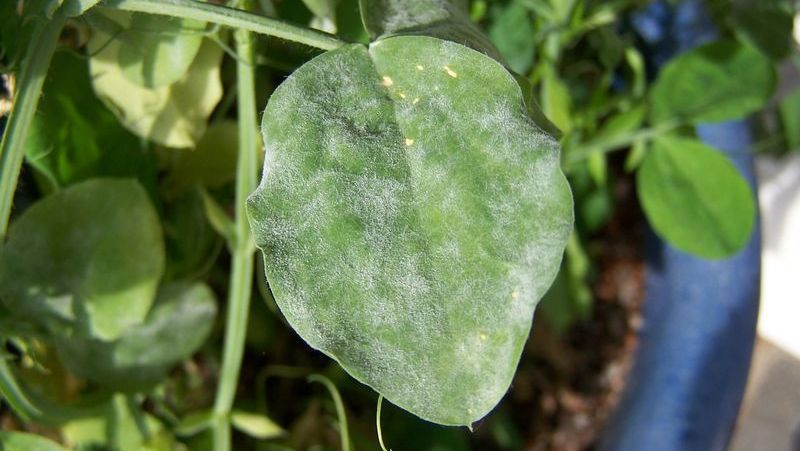
Fungi spread by means of tiny dust-like particles called spores. Fungi produce literally billions of them every day! Fascinatingly, spores have the ability to use raindrop splashes to launch themselves into air currents, meaning our gardens are constantly filled with spores circulating through the air. If they land on a compatible target plant, the spore can germinate and develop into fungus: but only if there’s moisture around. Hence autumn mists, dew, showers and breezes play a big role in encouraging the spread of fungal pathogens.
Here's a spotlight on the most common fungal diseases that are found in the garden (scroll down for the lawn diseases section):
Powdery Mildew
Named after the powdery coating that spoils new shoots and leaves, powdery mildew affects plants like roses, cucurbits (pumpkin relatives), hydrangeas, azaleas, and apples.
Yates Natures Way Fungus Spray provides effective control of powdery mildew and is suitable to be applied to vegetables, including tomatoes. For non-edible plants such as roses or sweet peas, Yates Rose Gun Spray Ready to Use is a good choice for treating powdery mildew on roses and other ornamentals.
Downy Mildew
Downy Mildew is often more widespread in younger plants and is diagnosed by downy-looking whitish tufts on the underside of the leaves and circular, yellow 'oil spots' on the upper side of leaves. Downy mildew is common on grapes, vine crops, cabbages and other crucifers, onions, lettuce and stocks.
As described above, nearby plants can be quickly infected by spores on plant foliage being splashed with water. Make certain to carefully water the soil at the base of plants only, to keep the foliage as dry as possible. Treat downy mildew with Yates Liquid Copper Fungicide.
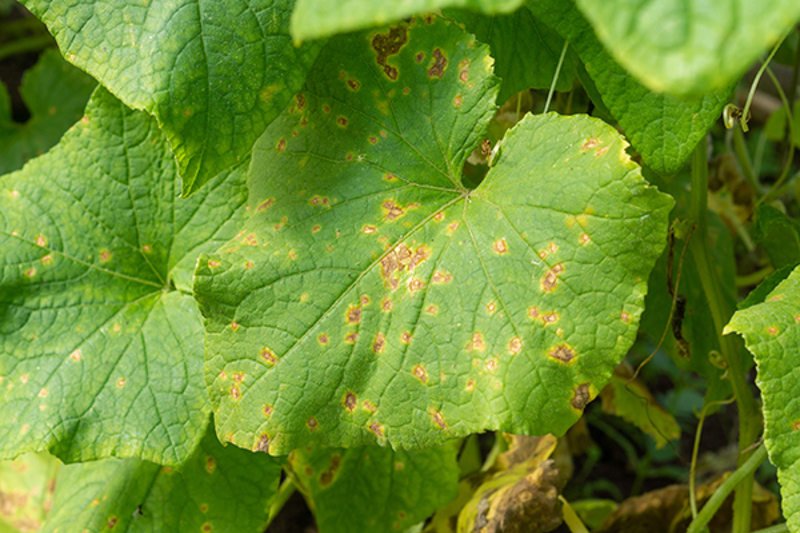
Leaf Spot
The most notorious leaf-spotting disease is black spot, the scourge of rose plants. The spores of this disease need to sit on a moist surface for about seven hours before they can germinate, so one of the best ways to prevent its development is to keep the leaves dry. Always water roses in the morning and allow the leaves to dry out through the day. From early spring, spray every two weeks with Yates Rose Gun Spray Ready to Use, alternating with Yates Liquid Copper Fungicide Concentrate. Prune to increase air movement through plants.
Rust
Rust gets its name from the yellow/orange pustules that appear on the foliage. There are hundreds of different rust diseases and they affect a wide range of plants. Use Yates Rose Gun Spray Ready to Use to treat rust.
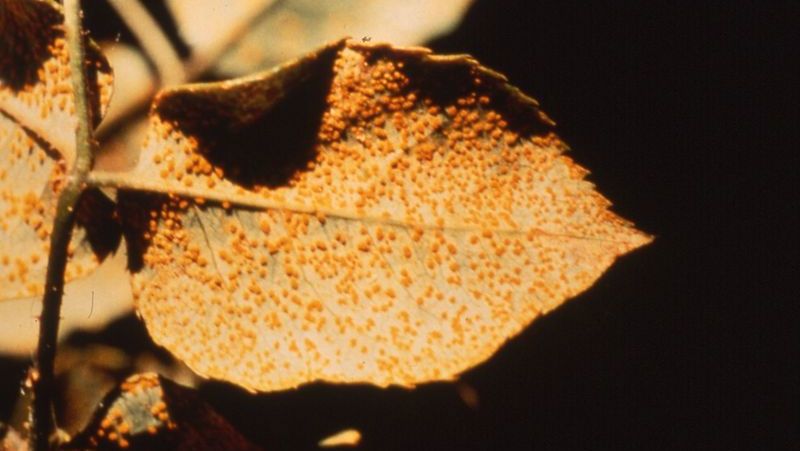
Leaf Curl
Leaf Curl is a fungal disease which affects Nectarines, Peaches, Plums and Almonds. The disease overwinters in the bark and buds. For most stone fruits, one or two well timed applications of Yates Liquid Copper Fungicide should control the disease. It's usually treated in winter, but if the problem was severe in the previous season, an extra autumn application after leaf drop is recommended. Follow label instructions for correct timing of the fungicide spray, as this varies between stone fruit varieties.
Root Rot
Usually caused by a disease with the tongue-twister name Phytophthora, this problem moves up from the roots to cause dieback in leaves and stems. It affects plants like snapdragons, leucadendrons, loquats, passionfruit and many others. Poor drainage can exacerbate the problem, so try to avoid growing susceptible plants in heavy or clay soils. Improve drainage by incorporating generous quantities of organic matter like Yates Dynamic Lifter Organic Plant Food and compost. Destroy infected plants (definitely don't put infected plant material in your compost).
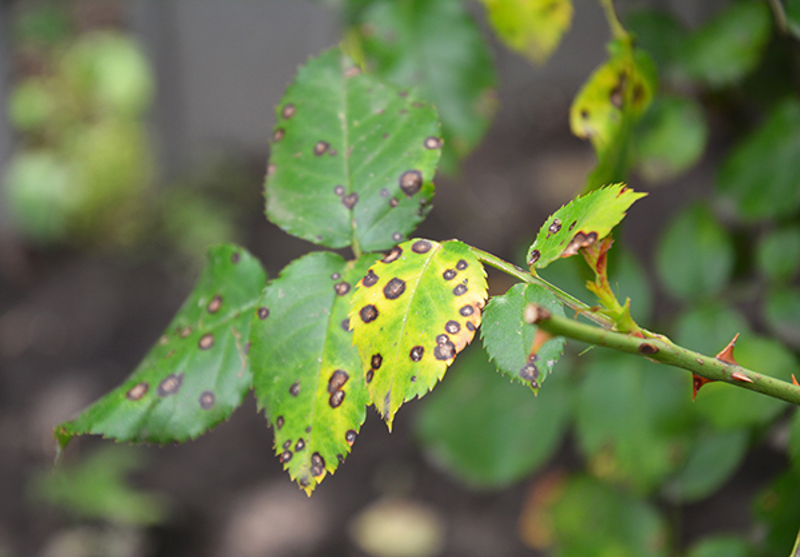
Lawn Diseases
Brown Patch
Brown Patch usually occurs in late spring, summer or autumn when the weather is warm and humid. Bent (Browntop) and fine fescue lawns are very susceptible.
It starts with small discoloured purplish patches of grass, which later spread to form irregular shaped dead patches, a metre or more in diameter.
Lawns should always be watered in the morning so they dry well before nightfall. If brown patch has taken hold, stop all watering until the fungus dies down. Avoid applying high-nitrogen fertilisers in humid conditions, as it can encourage the fungus to develop. Aerate and dethatch the lawn if possible.
Dollar Spot
Dollar Spot usually occurs in late spring, summer or autumn, especially when the weather is consistently warm and humid (and lawns remain wet overnight). This disease is most prevalent in the upper North Island.
Dollar Spot is very similar in appearance to Brown Patch, but the spots usually remain small (less than 8cm across) and circular. Spots often appear in clusters. Dollar spot affects all grass types, with lawns recovering from drought stress being especially susceptible. In the early stages, if the lawn is wet the cobwebby mycelium of the fungus can be observed over the affected area. The disease progresses to cause distinctive light-coloured blotches with reddish edges, visible on individual grass blades.
Apply Yates Fungus Fighter to directly control dollar spot infections. Lawns should always be watered in the morning so they dry well before nightfall, as excess moisture increases the risk of dollar spot. Keep lawns well fed; poor lawn nutrition and stress are classic contributing factors.
Lawn Rust
Lawn Rust generally occurs between early summer and late autumn, while the weather is warm and wet. Ryegrass and tall fescue lawns are susceptible to rust. This disease doesn't usually cause grass to die off completely, but it does severely depress overall lawn health.
Lawn rust starts out as yellow speckles or spots on grass leaves, then forms bright, rusty orange powdery masses of fungus spores on individual blades. If rubbed between your fingers, the grass will leave traces of orange powder behind.
Apply Yates Fungus Fighter to directly control lawn rust infections. Excess moisture increases the risk of lawn rust. Keep lawns well fed; poor lawn nutrition (and periods of drought stress followed by heavy rain) are often contributing factors to rust infections.
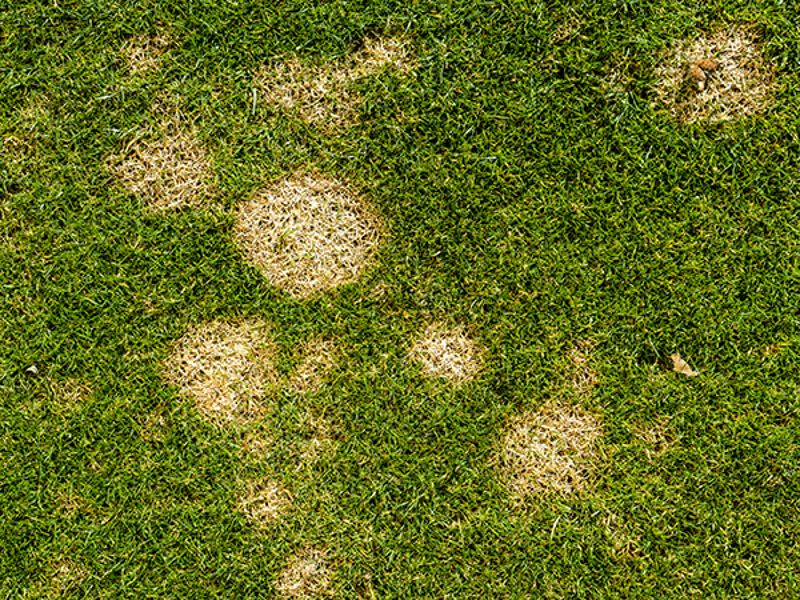
Fusarium Patch
Fusarium Patch
Fusarium Patch usually occurs in late autumn, winter or early spring while the weather is cool, consistently humid and sunlight hours are limited. The mycelium of the fungus can survive in lawn thatch and soil through the warmer parts of the year, waiting for favourable conditions to begin growing again. Bent (Browntop) and fine fescue lawns are very susceptible, especially in areas with highly alkaline soil pH.
Small circular patches of slimy wet-looking grass begin to form, with ‘cobwebs’ showing up under dewy conditions. This is the mycelium of the fungus, which is sometimes visible as white rings around the patches. The blighted patches can join up to cover larger areas of lawn. Affected grass blades quickly turn yellow at the tips, then die off to a pulpy brown colour.
Lawns should always be watered in the morning so they dry well before nightfall. If fusarium patch has taken hold, stop all watering until the fungus dies down. Improve lawn drainage, where possible. Avoid applying high-nitrogen fertilisers in humid and overcast conditions (especially during winter), as it can encourage the fungus to develop. Aerate and de-thatch the affected lawn where possible.
Red Thread & Pink Patch
Red Thread is encouraged by a combination of cool temperatures, consistently high rainfall and high humidity. The 'sweet spot' for red thread is in spring or autumn, just as the season warms up or cools down. Perennial ryegrass and fescues are very susceptible.
These diseases first show up as reddish-tinged patches in a lawn, which then turn brown. If you look at the outer edges of the patches, you'll notice distinctive red threads or fluffy looking pink tufts amongst the grass blades. This is the mycelium of the fungus.
Applying a fast-acting lawn food like Yates Lawn Fertiliser Quarterly helps to reduce the severity of the disease. Keep lawns well fed; poor lawn nutrition is a common characteristic of red thread infections. Excess moisture increases the risk of red thread. Aerate and de-thatch the affected lawn where possible.
Leaf Spot & Melting Out
These are different stages of the same fungal disease. It can appear all year round, on any lawn grass species. It's most prevalent while the weather is cool, consistently humid and sunlight hours are limited. Lawns that remain wet for extended periods are at greater risk of leaf spot developing.
Symptoms first appear as dark, rusty brown spots on the leaf blade. These spots (lesions) are where the fungus has damaged the grass tissue. As the disease progresses the lesions get larger, turn pale in the centre but retain the rusty colour around their edges. Eventually, the fungus rots the crowns and roots of the grass, causing the "melting-out" stage of the infection. Affected grass plants begin to yellow and wilt, before browning and dying off. The remaining grass becomes very sparse and thin in infected areas.
Raise the height of the mower and reduce mowing frequency, as soon as you spot the disease. Stop all watering until the fungus dies down. Improve lawn drainage, where possible. Avoid applying high-nitrogen fertilisers in humid and overcast conditions, as it can encourage the fungus to develop. Aerate and de-thatch the affected lawn where possible.
















Share
Share this article on social media